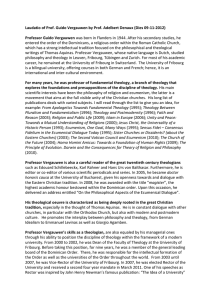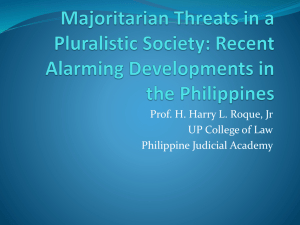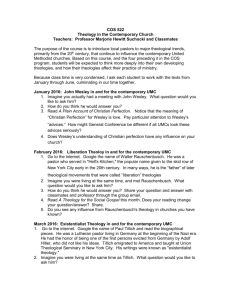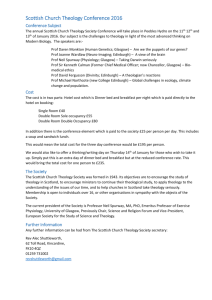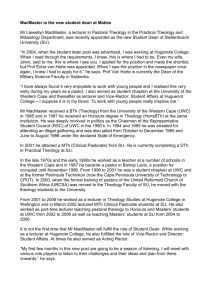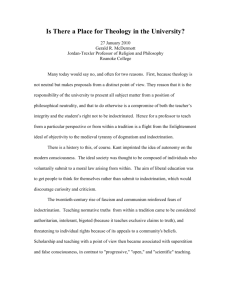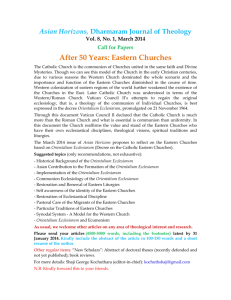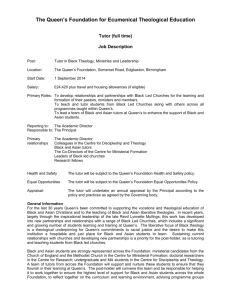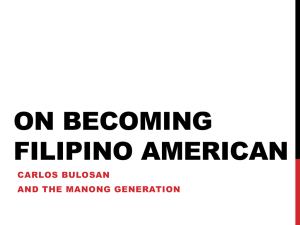Challenges in Christian Community Development in the Philippines
advertisement
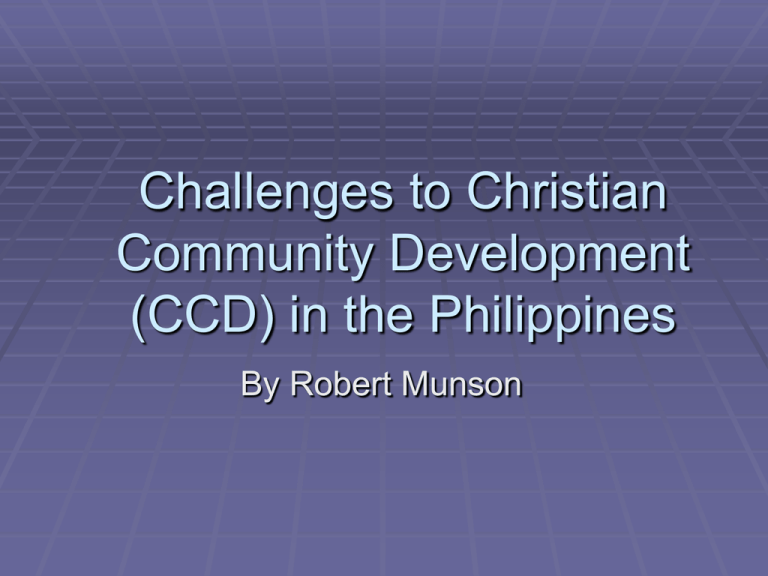
Challenges to Christian Community Development (CCD) in the Philippines By Robert Munson This presentation briefly summarizes a paper written based on interviews with church and mission leaders in the Philippines in 2007, supported additionally by literary sources. Three Categories of Challenges Within the Philippine Church Context Within the Philippine Context Non-contextual Challenges Within the Philippine Church Context Bad Theology Lack of Resources Different Focus Lack of Example Bad Theology Sacred versus the Secular (Church should only do “sacred things”) “Separatism” (The church should not stain itself with the concerns of this world.) Theology: 3. Contextualization Wholism is a Western creation leading toward standard Western methodologies. No good Filipino books describing what wholistic ministry should be in the Filipino church. Result? Little actual Filipino-based wholistic community development. Most comes from outside. Theology: 4. Individualism Evangelical churches tend to focus on individual change. They tend to ignore other social units. The community is either considered unimportant, or evil. Theology: 5. Apocalypticism Many evangelical churches assume that Jesus will return very soon. Because of this they tend to do short-term ministries. Now, if Jesus was returning next week, we probably should be doing mass crusades. However, if Jesus is returning in 200 years, we should be creating communities conformed to God’s kingdom that conforms people to Christ for generations. Lack of Resources Financial and Material. (Perception) Lack of Trained Human Resources. Focus on Relief Churches focus on doing relief, not development. Tied to poor theology and to lack of resources. Rhodora Mendoza, Head of HCDI “Community Development work in the Philippines is done by GOs and NGOs. Churches and aid organizations are mostly relief-oriented. Seldom can you find them doing ‘real’ community development work… One challenge is to instill in the people ownership of the program and to do something to improve their lives since most people, especially in poor communities, are relief-oriented and the church, or most church-initiated projects, are doing just that.” Lack of Example Most community development is either: Loosely partnered with a church Disconnected from the church Rey Abellera, Head of One Hope Ministry “When we talk to the students or go to the churches and talk about doing community development, they want to see where this has been done before. I don’t have an answer for them. Therefore, we have to be the example.” Within the Philippine Context Cultural Factors Historical Factors Cultural Factor: “Utang na Loob” Community development needs to create interdependency within a community. Utang na Loob works against this. It prevents growth Promotes dependency Creates “Rice Christians”. Cultural Factor: “Bahala na” “Bahala na works against Individual and social progress, … It harnesses one’s behavior to a submissiveness that eats up one’s sense of responsibility and personal independence. It provides one with a false sense of selfconfidence to proceed with an unsound action in the belief that somehow one will manage to get by.” -Tomas D. Andres (quoted by Tereso Casino) Cultural Factor: Bahala na Has roots in Animism, Hinduism, Islam, and Catholicism. Sounds Christian (“Let Thy will be done”) It is not Christian to confuse impersonal fate with personal God. Historical Factor: COMDEV History COMDEV began in the Philippines as government programs. (PACD) Foreign Governments, NGOs, and International Agencies became involved. The Evangelical Church has only gotten involved through the parachurch. Historical Factor: Government Corruption Filipinos believe much of their government is corrupt. It is not the reality of this corruption that matters so much as the perception of this corruption. Churches assume that government is nonresponsive and corrupt. Therefore, they don’t work with them. Historical Factor: Private Org Track Record NGOs, Mission Groups, and other groups have a poor record. They often act on a flawed theology and a flawed priority. This track record makes governments and communities untrusting. Non-Contextual Issues Money Uncertain role of Social Ministry Fragmentation Leadership Money: Dependency Glenn Schwarz has pointed out that if rich countries simply giving money to poor communities worked, “then Haiti should be a shining example of development in our world.” Dependency looks a lot like development, yet is the opposite. Money: Economic Focus Is economic development always a good thing? Can money, businesses, and materials lead to community breakdown? Money: Scarcity of Monetary Resources It is more than perception… it is real. It is a worldwide problem. But scarcity is not always a bad thing. Uncertain Role of Social Ministries Spiritualist View “Social Gospel” Convenience View Ulterior Motive View Wholistic View Attitudes regarding CD Fragmentation Immaturity of Partners Lack of Shared Vision Power Leadership True Community Development means that communities take over ownership. Indigenous leaders must “catch the vision” and be trained. Leadership from outside of the community needs to develop an exit strategy. The “datu” mindset often sabotages innovation. Conclusions Is CCD a waste of time? The church has value in community development Provides opportunity for contextualized spiritual message in the community, and catalyst for spiritual transformation. (Should) Provide an example of a functional interdependent community. It is incarnational. In the community. Provide indigenous leadership for the community. Is Christian Community Development harder here than in other countries? Barangay System Catholicism Pakikisama/Bayanihan Challenges to Christian Community Development (CCD) in the Philippines By Robert Munson


